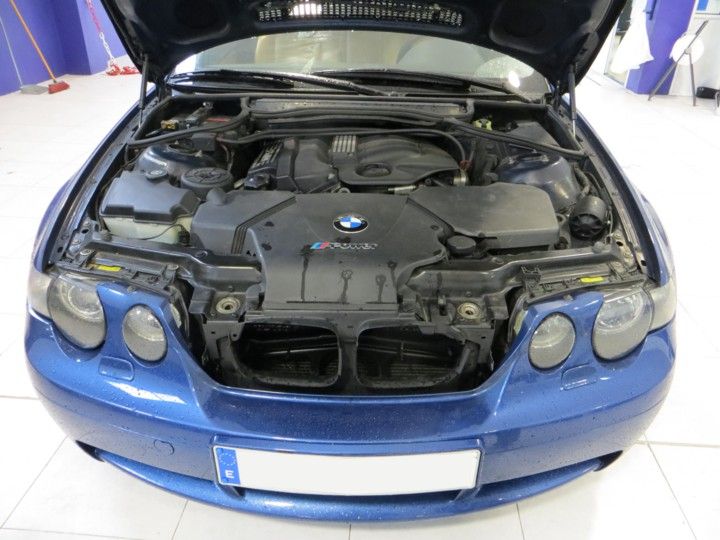BMW 318ti: Efficiency Specifications and Features Explained
Key Functions to Seek When Investing In an Engine for Automotive Applications
When taking into consideration the acquisition of an engine for vehicle applications, a number of essential attributes warrant mindful analysis to make sure optimum performance and performance. From power and efficiency capacities to fuel adherence, sturdiness, and performance to discharges standards, each aspect plays an important duty in establishing the engine's suitability for details automotive requirements.
Power and Performance
When selecting a vehicle engine, purchasers focus on power and efficiency to guarantee optimal driving experience and performance. A well-performing engine not just delivers power successfully however additionally runs efficiently throughout various speed ranges and driving conditions.
Customers usually consider the engine's torque output alongside its power rating. Torque, determined in pound-feet (lb-ft) or Newton-meters (Nm), mirrors the engine's rotational force, affecting the car's capacity to tow, climb slopes, and accelerate from grinding halt. A balance in between power and torque is essential for accomplishing a functional and responsive driving experience. Additionally, factors such as engine turbocharging, displacement, and hybrid innovations play substantial roles in improving both power and performance degrees. Inevitably, selecting an engine that provides a powerful mix of power and efficiency makes certain a rewarding and reliable driving experience. bmw 318ti.
Fuel Efficiency
Enhancing gas performance is a critical factor to consider for consumers when evaluating vehicle engine options. The effectiveness of an engine directly impacts operating expenses and environmental footprint. One vital aspect affecting gas efficiency is the engine's design and innovation. Modern engines with functions like straight gas shot, turbocharging, and variable shutoff timing can significantly improve gas performance by boosting combustion processes and minimizing power loss. In addition, the general weight of the engine and automobile, along with the aerodynamics, play critical duties in figuring out fuel consumption.

Durability and Integrity
Achieving long-lasting efficiency and dependable operation is vital for customers assessing the longevity and dependability of automotive engines. When taking into consideration an engine for automotive applications, durability describes the engine's ability to hold up against wear, stress, and harsh operating problems over an extensive period. Integrity, on the various other hand, implies that the engine can regularly do its desired feature without unforeseen malfunctions or failings.
Consumers must look for engines built with high-grade materials and specific engineering to ensure long life. Components such as crankshafts, pistons, and bearings should be long lasting to handle the engine's power output without premature wear. Furthermore, engines furnished with innovative air conditioning systems, reliable lubrication, and robust filtering devices have a tendency to show greater levels of dependability.
Regular maintenance and adherence to manufacturer referrals are additionally essential consider protecting an engine's sturdiness and reliability. By click to find out more following maintenance timetables, using advised fluids, and attending to any kind of problems quickly, customers can make the most of the life expectancy and performance of their vehicle engines. Inevitably, focusing on durability and integrity in engine option can result in an extra rewarding ownership experience with fewer unanticipated disruptions.
Discharges Conformity
Guaranteeing compliance with discharges guidelines is a crucial facet of examining vehicle engines for eco mindful customers. With raising worries regarding air high quality and ecological effect, rigorous discharges requirements have been established internationally to minimize dangerous toxins this content released right into the environment. When buying an engine for automobile applications, it is important to consider its exhausts conformity to lessen the carbon footprint and stick to lawful demands.
Modern engines are geared up with innovative exhaust control innovations such as catalytic converters, exhaust gas recirculation (EGR) systems, and careful catalytic decrease (SCR) to decrease damaging exhaust gases like nitrogen oxides (NOx), carbon monoxide gas (CARBON MONOXIDE), and hydrocarbons (HC) These systems play an important role in making certain that the engine meets the specified emissions criteria and operates within acceptable restrictions.

Cost-effectiveness
When thinking about vehicle engine purchases, examining cost-effectiveness is vital for consumers seeking both efficiency and value. It incorporates the total costs associated to maintenance, fuel consumption, and prospective repairs over the engine's lifespan.
Engines that are designed to optimize gas economy can lead to substantial financial savings over time, particularly for people that drive regularly or over long ranges. Continued bmw 318ti. In addition, considering the availability and affordability of extra components and servicing can add to the general cost-effectiveness of an engine.

Final Thought
Finally, when buying an engine for automobile applications, it is essential to think about crucial features such as power and efficiency, fuel effectiveness, dependability and durability, emissions conformity, and cost-effectiveness. These aspects are crucial in ensuring that the engine satisfies the demands of the automobile and operates properly in various driving problems - bmw 318ti. Making a notified decision based on these criteria will eventually cause a efficient and effective automobile engine purchase
From power and efficiency capacities to fuel efficiency, sturdiness, and adherence to emissions criteria, each aspect plays a vital role in determining the engine's suitability for specific vehicle needs. Engines developed to run on different fuels such as electrical power, crossbreed systems, or biofuels can supply enhanced gas economic situation and lower discharges compared to typical gas or diesel engines. Customers need to thoroughly think about the gas performance rankings and modern technologies incorporated into automotive engines to make enlightened buying choices that straighten with their concerns for expense savings and sustainability.
When thinking about an engine for auto applications, sturdiness refers to the engine's ability to endure wear, tension, and severe operating conditions over an extended duration.In conclusion, when acquiring an engine for automotive applications, it is vital to take into consideration key features such as power and performance, fuel effectiveness, durability and dependability, emissions compliance, and cost-effectiveness.